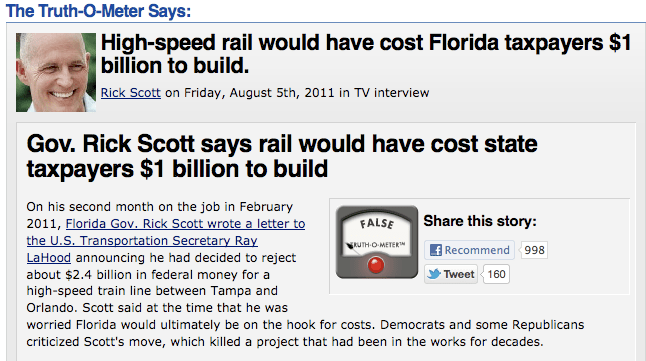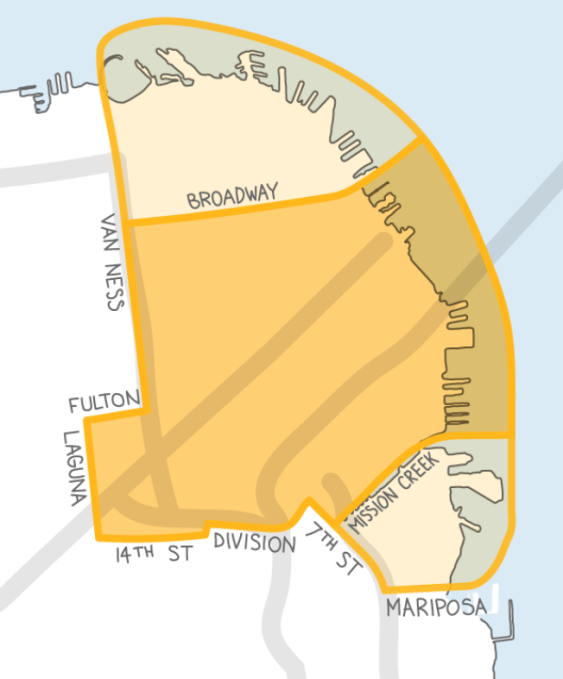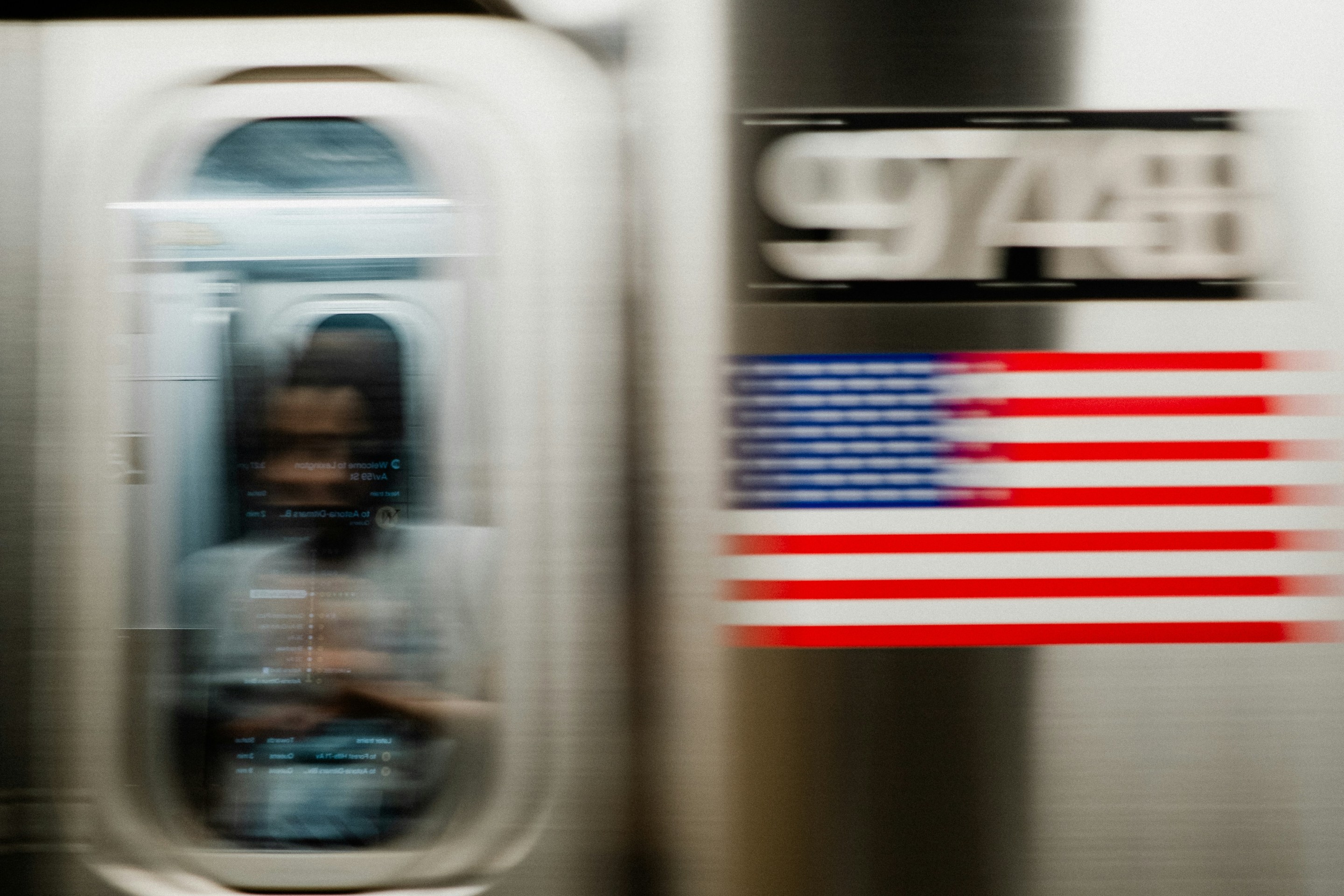
Wisconsin, Ohio, New Jersey, Florida -- the Republican governors in each of these states recently aborted a major rail project claiming it was too expensive. Their methods were remarkably similar; their justifications aligned. In many ways, it was like they were all working from the same playbook.
Now that the Government Accountability Office has exposed New Jersey Governor Chris Christie's distortions (a.k.a. lies) to justify killing the ARC rail tunnel project to Manhattan, it makes you wonder if similar investigations in Wisconsin, Ohio and Florida would reveal the same.
Today James Rowen, who writes The Political Environment blog out of Milwaukee, reminded readers that he was pointing out the distortions put forward by Wisconsin Governor Scott "No Train" Walker more than a year ago. In August 2010, Scott Walker, then a candidate for governor, told the Milwaukee Journal-Sentinel that the train would cost Wisconsin $8 million annually to operate.
Meanwhile the newspaper reported the actual cost to the state would be less than one-tenth of his claim:
Operating costs are projected at $7.5 million a year, not counting the part covered by fares. But [WisDot official Carl Anne] Renlund said the state is already using federal funds to cover 90% of the Hiawatha's $5.2 million annual operating cost - leaving $520,000 a year for state taxpayers to pick up - and hopes to do the same with the new line. That would mean state taxpayers would be paying $750,000 a year for the service to Madison.
In Ohio, Governor John Kasich also relied on half-truths or worst-case scenarios in his campaign to kill Ohio's 3C Rail project. Kasich repeated over and over that the train would be too slow to attract passengers, traveling at an average speed of 39 miles per hour. “The 39 mph high-speed train is dead when I become governor,” he told Ohio reporters.
Kasich did not change his tune when the plan was altered to raise the average speed to 50 miles per hour, as reported by Martin Gottlieb of the Dayton Daily News in October 2010:
Average speeds will be higher in the middle of the route: 61 mph between Columbus and the suburbs of Cleveland. All told, the Cincinnati-Cleveland run will be 90-minutes shorter than originally projected. The average approaches car speeds, figuring traffic delays and stops.
That prompted Gottlieb to assert that "Kasich's pitch on trains [was] not really about speed" but about "philosophy."
Meanwhile, it was more of the same over in Florida, where Governor Rick Scott said that HSR would have cost state taxpayers $1 billion to build. Scott told a Tampa television station: "They offered, the federal government, here's the deal... I'm going to give you $2.4 billion -- that sounds nice right? You've got to put up a billion dollars to finish the project. And you are going to lose money every year. And if you decide, gosh I'm tired of losing that money, you've got to give the $2.4 billion back. It's a bad deal."
Politifact rated Scott's claim an unequivocal "false," reporting that the feds actually expected Florida to pick up $280 million in construction costs:
So why did the state say the rail line would cost the state $280 million to construct but Scott said $1 billion? The answer is because Scott's source of information isn't state transportation officials. It's the libertarian Reason Foundation.
On Jan. 6, 2011, the Reason Foundation released an analysis about Florida's rail project, which concluded that capital costs to build the project would be higher than anticipated and ridership would fall short, leaving the state with operational shortfalls. Scott relied on the Reason analysis in killing the high-speed rail project.
Polifact went on to question the study's "methodology and objectiveness." It was written by pseudo-libertarian Wendell Cox, who has made his career railing against transit and urbanism.
Relying on the Cox "study" -- which was really more of a survey of transportation projects all over the world, not limited to HSR -- Rick Scott predicted the project would come in $1.2 billion over budget and assumed the majority of those costs would be borne by the state, which Politifact said "likely wasn't true."
Sound familiar? Earlier this week, Governor Chris Christie was called out by the non-partisan Government Accountability Office for using similarly deceptive rhetoric when he killed New Jersey's ARC tunnel. Christie claimed that the state would pick up 70 percent of the project costs. The GAO pegged the real figure at 14.4 percent. And Christie also justified changing his mind about the project by saying overruns would bring the total cost to $14 billion. But as the New York Times reported earlier this week:
...the range of estimates had in fact remained unchanged in the two years before he announced in 2010 that he was shutting down the project. And state transportation officials, the report says, had said the cost would be no more than $10 billion.





